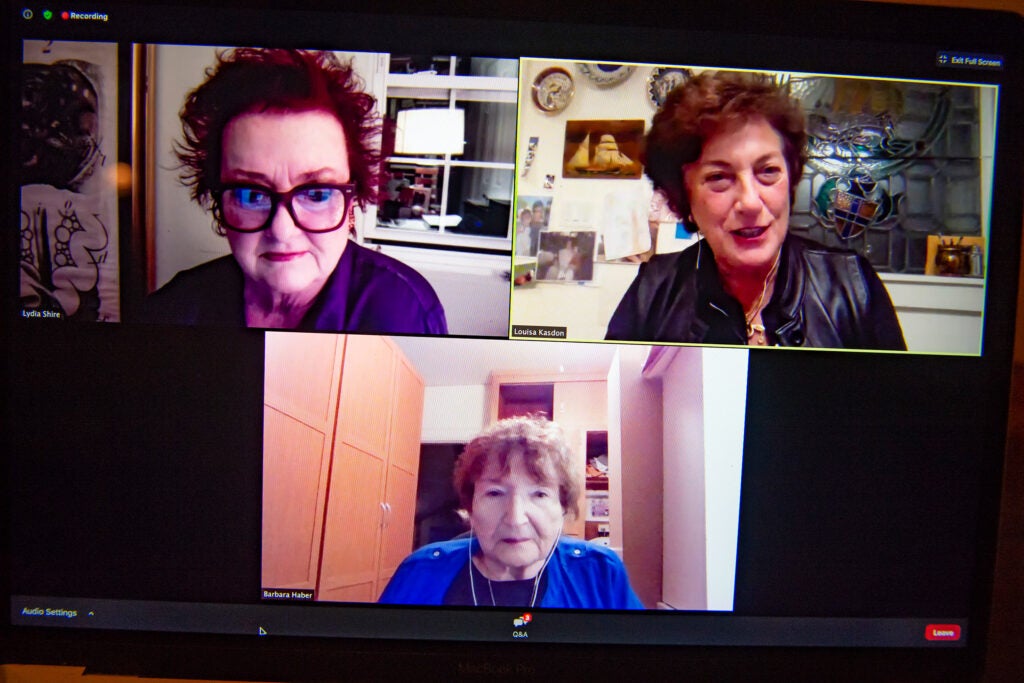Interestingly, it was a man who inspired Boston chef and restaurateur Shire’s lifelong love affair with food. When not working as an artist, Shire’s father, a quiet Irishman with an understated “elegance,” enlisted his daughter’s help in the kitchen. Shire eventually trained at the Cordon Bleu and became the first female head chef at Boston’s famed Locke-Ober restaurant, a favored haunt of Boston businessmen which opened in 1875 and didn’t even admit women until 1970. Shire still remembers the smell of the first garlic clove she chopped with a giant cleaver at the age of 4, and the sight of her father searing a flank steak to perfection on an old, cast-iron pancake griddle.
“It was love at first sight,” said Shire. “I wanted to be like my father.”
While professional kitchens were predominantly run by men early in Shire’s career, today the culinary landscape looks very different, with many more women working as chefs.
“That’s changed dramatically. That’s a big change. … My God, women are amazing,” said Shire, acknowledging that while “women always have to work harder than their male counterparts do,” there is “definitely more respect in a kitchen now.”
In the end, Shire said, the proof of a chef’s talent, regardless of gender, is the quality of the food.
“If you are a smart cook and you’re coaxing flavor out of something and you’re not afraid to season something, you’re not afraid to be bold and brassy, and maybe keep adding something until you taste something and you say, ‘Ah, that’s it. Stop. No more’ — I feel, to me that’s what a professional is,” said Shire. “And I think, a man professional and a woman professional, to me they’re the same.”
No talk on food and gender would have been complete without a mention of Julia Child, the culinary great and Cambridge resident who revolutionized American cooking by simply sharing her love of French food with others. Shire recalled nights at Child’s home filled with wine and hors d’oeuvres. The food was important, but so were the connections. “She was not an egomaniac who wanted adulation,” said Shire. “She just really wanted person A to meet person B and make something happen.”
How will the food landscape change after COVID-19? Kasdon wondered. Once there is a working vaccine, Shire and Haber said they envision those who are tired of cooking at home, along with any number of up-and-coming chefs, recharging the restaurant scene. “I’m hoping rents will be attainable for young people and that you will get a whole new generation, a whole new wave of restaurants, food shops of all sorts, both started by women and men,” said Haber.
Shire agreed. “I think that as far as young chefs working their way up, it’ll be equal, equal men, equal women.”
The discussion was inspired by the Peabody exhibition “Resetting the Table: Food and Our Changing Tastes.”
